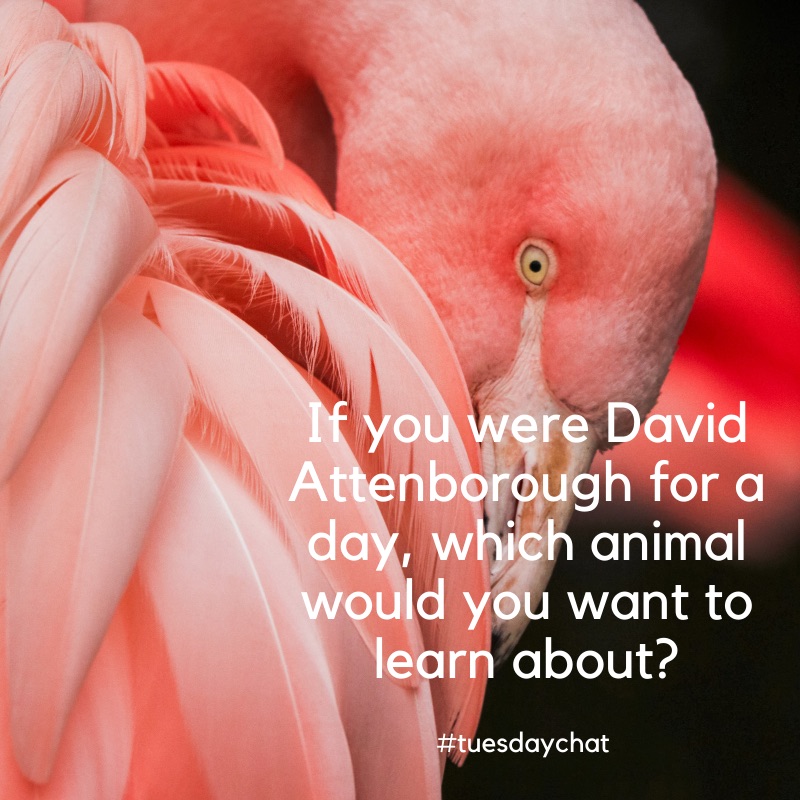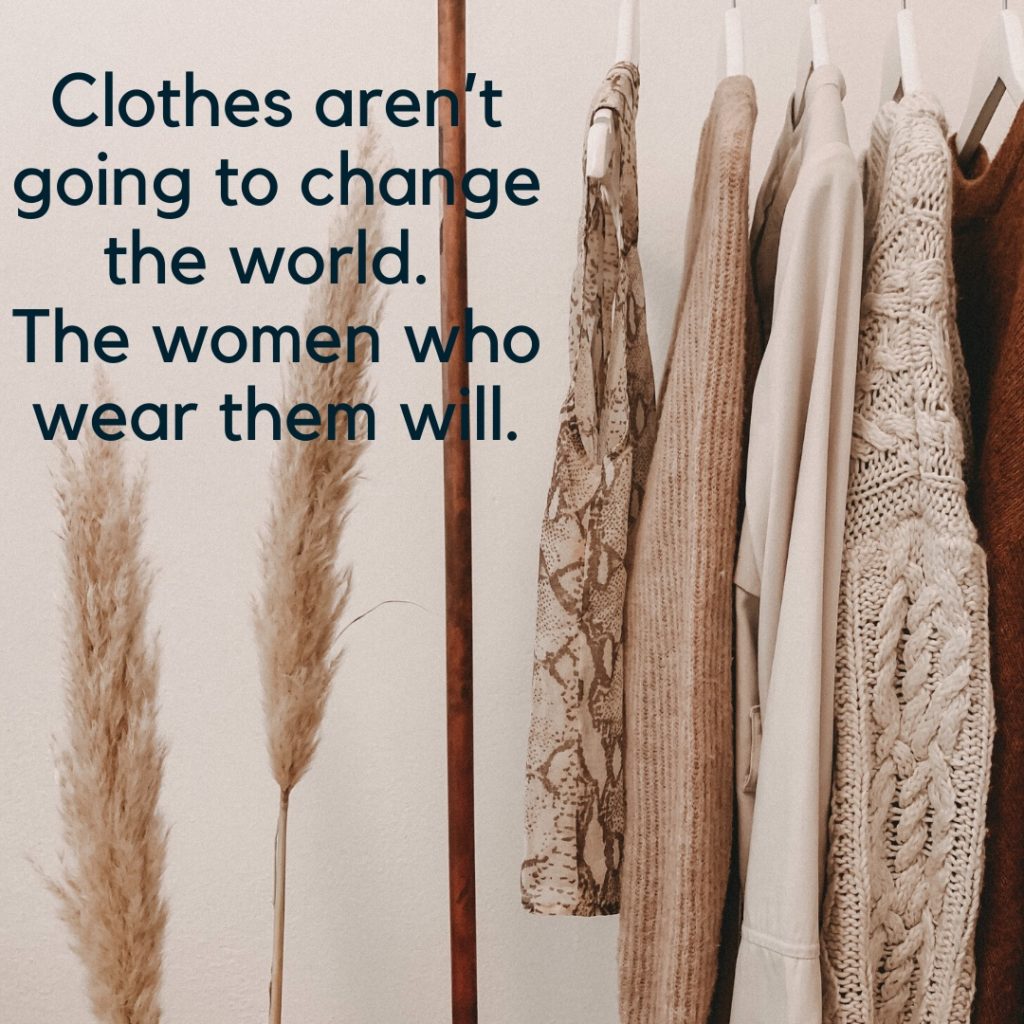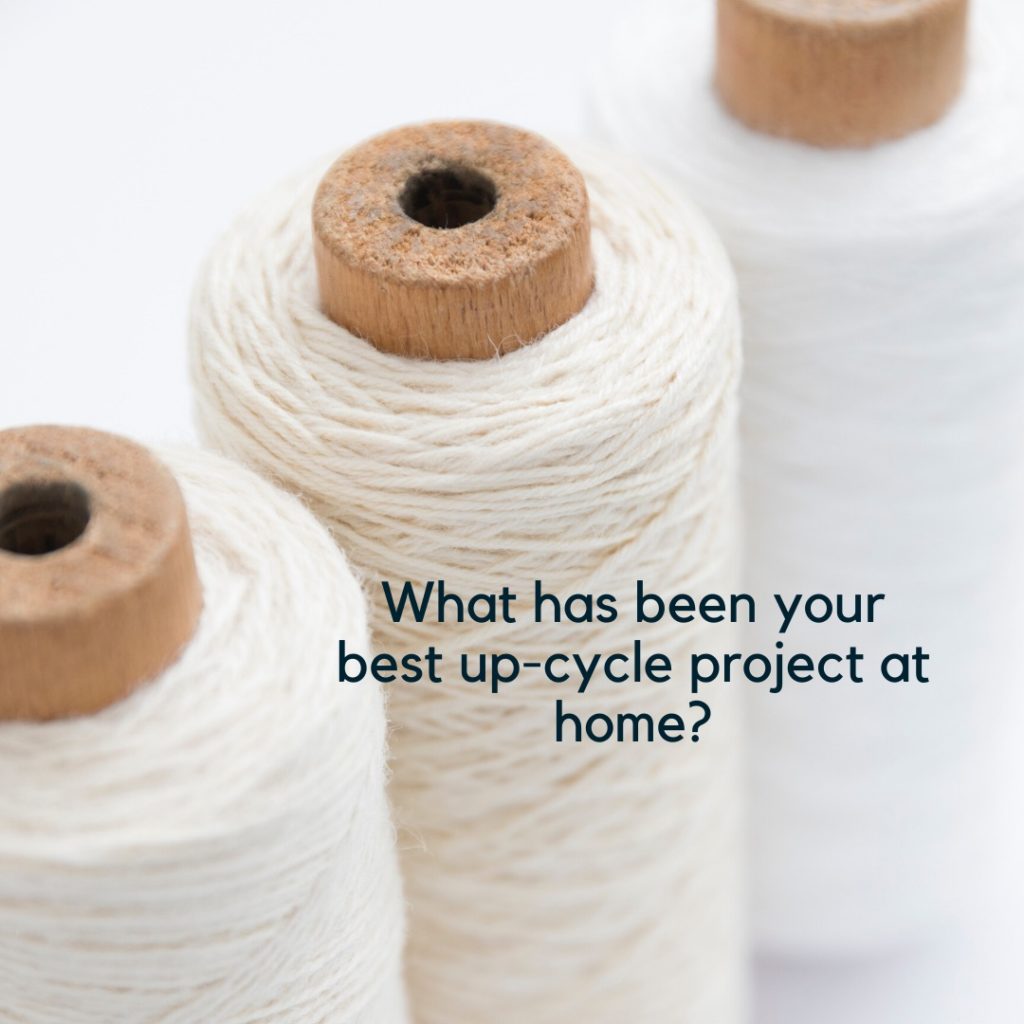David Binder is a Broadway producer, who found himself in a small Australian neighbourhood, watching locals dance and perform on their lawns uncovering new face of arts festivals, breaking the boundary between audiences and performers.
Tag Archives: #change
The anti-CEO playbook
Profit, money, shareholders: these are some of the priorities of most companies today. But at what cost? In an appeal to corporate leaders worldwide, Chobani founder Hamdi Ulukaya calls for an end to the business playbook of the past and shares his vision for a new, “anti-CEO playbook” that prioritises people over profits. “This is the difference between profit and true wealth,” he says.
The newest motivational titles on the market for business
February is typically when we are all back in the office and into the swing of the 9-5 work day. However this year things are a little different. COVID-19 has meant that many of us are working from home and our office hours have become more flexible. While having the coffee machine and fridge close by and a non-existent commute are all wonderful upsides to working from the home office, there are days when motivation is seriously lacking. The good news is, that it’s okay to feel unmotivated from time to time, but for those days when you just can’t seem to get inspired we have rounded up a few books that could help. Self-help is a hugely popular genre and we are super happy that there is a continual stream of new titles being released, but it’s these ones below that we think will help you on a rather -ahem- unproductive day at work.
Make yourself a cuppa and settle in for a bit of a read… it’s okay, it’s ‘kind of’ work related.
How to Decide: Simple Tools for Making Better Choices by Annie Duke
What do you do when you’re faced with a big decision? If you’re like most people, you probably make a pro and con list, spend a lot of time obsessing about decisions that didn’t work out, get caught in analysis paralysis, or endlessly seek other people’s opinions to find just that little bit of extra information that might make you sure. Or, you might take pride in your gut instincts and go with that. What if there was a better way to make quality decisions so you can think clearly, feel more confident, second-guess yourself less, and ultimately be more decisive and be more productive? Making good decisions doesn’t have to be a series of endless guesswork. Rather, it’s a teachable skill that anyone can sharpen. In How to Decide, bestselling author Annie Duke and former professional poker player lays out a series of tools anyone can use to make better decisions.
Out of My Skull: The Psychology of Boredom by James Danckert, John D. Eastwood
No one likes to be bored. We avoid boredom at all costs. It makes us feel restless and agitated. Desperate for something to do, we play games on our phones, retie our shoes, or even count ceiling tiles. And if we escape it this time, eventually it will strike again. But what if we listened to boredom instead of banishing it?
Psychologists James Danckert and John Eastwood contend that boredom isn’t bad for us. It’s just that we do a bad job of heeding its guidance. When we’re bored, our minds are telling us that whatever we are doing isn’t working, we’re failing to satisfy our basic psychological need to be engaged and effective. Too many of us respond poorly. We become prone to accidents, risky activities, loneliness and we waste ever more time on technological distractions. But, Danckert and Eastwood argue, we can let boredom have the opposite effect, motivating the change we need. The latest research suggests that an adaptive approach to boredom will help us avoid its troubling effects and, through its reminder to become aware and involved, might lead us to live fuller lives. Out of My Skull combines scientific findings with everyday observations to explain an experience we’d like to ignore, but from which we have a lot to learn. Boredom evolved to help us. It’s time we gave it a chance.
The Times Great Quotations: Famous Quotes to Inform, Motivate and Inspire by Times Books
Be inspired and moved by the words of Malala Yousafzai, Amelia Earhart, Michelle Obama and Banksy in a collection of great and memorable quotations from across the centuries. Thematically-arranged quotes from the most notable minds, orators, celebrities, writers and politicians that ever lived. Struggling to recall those elusive quotes and sayings? With this thematic approach, The Times has the answer with a selection of the best one-liners across multiple topics and including a people index to help you find who and what you are looking for. This is one of our favourites: No matter how busy you may think you are, you must find time for reading, or surrender yourself to self-chosen ignorance.
The Quokka’s Guide to Happiness by Alex Cearns
Meet the Quokka. Miniature marsupial, tourist attraction and the happiest animal on the planet. Unique to Rottnest Island and small areas of the West Australian coast, these cute little critters have featured in more selfies than the Kardashians – no pouting necessary, just an adorable smile! Featuring stunning photography from award-winning Alex Cearns, and uplifting quotes, The Quokka’s Guide to Happiness is a gorgeous compilation sure to bring a cheeky little grin to anyone’s face and anyone wanting to break away from watching cat videos on Youtube.
How to Thrive at Work: Mindfulness, Motivation and Productivity by Stephen J Mordue
This is an essential read for anyone experiencing low level anxiety or stress, this book pulls together the various individual strands of business logic, scientific research, self-care, spirituality and common sense to provide a one-stop guide to thriving at work. The widespread ‘more for less’ attitude is creating a dramatic rise in work-related stress and a higher ratio of staff sickness. Not only does this create a fiscal impact upon the organisation and the broader economy but it has the potential to create significant long-term mental health issues for employees. You cannot always alter the demands of your professional or personal lives but, by understanding more about how your brain functions and by actively pursuing well-being techniques, you can enhance the skills that help you manage and succeed at the challenges thrown at you and reduce the risks associated with burnout. With a focus on improving mindfulness, motivation and productivity, this book offers sound, practical advice and strategies for self-care whatever your working environment and whatever stage you are at in your career.
The Demotivated Employee: Helping Leaders Solve the Motivation Crisis That Is Plaguing Business by Cathy Bush, Tara Peters
This one is for those of you that have a team to guide. Do you ever wonder why employees are not as motivated and productive as you would like for them to be? Do you find yourself thinking that some employees are just “lazy slackers”? You may be surprised to learn that there are other explanations for employee demotivation that you may not be thinking about when you are leading people. Authors Tara Peters and Cathy Bush have worked with thousands of leaders who are shocked to learn that managers and leaders play a significant role in causing employees to lose motivation. Without even realising it, we take all sorts of actions during the process of leading people and organisations, and many of these actions actually deflate the motivation that people bring with them to work. In The Demotivated Employee, readers will learn what leadership behaviours they are engaging in that might demotivate their employees; how to better communicate with employees so this doesn’t happen; and how to work within the constraints of organisational culture to help employees thrive.
Enjoy!
#tuesdaychat
If you were David Attenborough for a day which animal would you want to learn about? Perhaps a sloth, quokka or something super obscure?

How We Talk About Love
In love, we fall. We’re struck, we’re crushed, we swoon. We burn with passion. Love makes us crazy and makes us sick. Our hearts ache, and then they break. Talking about love in this way fundamentally shapes how we experience it, says writer Mandy Len Catron. In this Ted talk Catron highlights a different metaphor for love that may help us find more joy, and less suffering, in it.
The Best Books that teach us how to have a sustainable wardrobe
We are rounding up our month’s spotlight on sustainable living this week with a focus on our wardrobes. It’s the one part of our homes in which we can make a huge difference fairly quickly but it’s also one that requires a little more research to find solutions that are truely sustainable.
It’s a tricky world of fashion, not all fabrics are sustainable and sometimes the ones that are have had to go through quite the chemical process to get there, leaving behind waste and impact on the planet. We have found some great books that aim to educate (without shaming your desire to look nice) us on the world of fashion and the choices that are now available to us.
Whatever you do, don’t just throw everything you already own out in an effort to have a sustainable wardrobe, because as we know, that can actually add more to our growing environmental concerns. Perhaps just use these books as a guide, or a friendly reminder that when you do pop out to do a bit of shopping, there are few things you may want to keep in mind.
Wardrobe Crisis by Clare Press
Who makes your clothes? This used to be an easy question to answer: it was the seamstress next door, or the tailor on the high street – or you made them yourself. Today we rarely know the origins of the clothes hanging in our closets. The local shoemaker, dressmaker and milliner are long gone, replaced by a globalised fashion industry worth $1.5 trillion a year. In Wardrobe Crisis, fashion journalist Clare Press explores the history and ethics behind what we wear. Putting her insider status to good use, Press examines the entire fashion ecosystem, from sweatshops to haute couture, unearthing the roots of today’s buy-and-discard culture. She traces the origins of icons like Chanel, Dior and Hermès; charts the rise and fall of the department store; and follows the thread that led us from Marie Antoinette to Carrie Bradshaw.
From a time when Ralph Lauren and Calvin Klein were just two boys from the Bronx, to the world of the global fashion juggernaut, where Zara’s parent company produces more than 900 million garments annually, Press takes us on an insider’s journey of discovery and revelation. Wardrobe Crisis is a witty and persuasive argument for a fashion revolution that will empower you to feel good about your wardrobe again.
Slow Fashion by Safia Minney
Slow Fashion offers creatives, entrepreneurs, and ethical consumers alike a glimpse into the innovative world of the eco-concept store movement, sustainable design, and business that puts people, livelihoods, and sustainability central to everything they do.
Safia Minney argues that the future of brick and mortar retail is in the best in fair trade, sustainability, and organic products, together with vintage and second hand goods and local produce. Restorative economics, the well-being of our planet, and our bodies and minds can be inspired by this growing sector, one that is shaping big business.
This book curates pioneering people and projects that will inspire you to be part of the change. International names include Livia Firth, Zandra Rhodes, and Lily Cole. American change-makers include Andrew Morgan, filmmaker (The True Cost, a ground-breaking documentary that asks us each to consider who pays the price for our clothing), and Dana Geffner (Fair World Project).
Slow Fashion profiles the people bringing the alternatives to the mainstream: designers, labels, and eco-concept stores across the world; fair trade producers; campaigns that are re-designing the fashion economy; and the fibres and fabrics which are making a difference.
Slow Clothing by Jane Milburn
Slow Clothing presents a compelling case for why we need to change the way we dress, to live lightly on Earth through the everyday practice of how we wear and care for our clothes. In an era dominated by passive consumption of cheap and synthetic fashion, Jane Milburn arrived at the Slow Clothing philosophy by refashioning garments in her wardrobe to provide meaning and story.
Jane tells her journey to Slow Clothing and provides ideas for you to easily implement. Slow Clothing reflects our own style and spirit, independent of fashion cycles. We buy thoughtfully, gain skills, and care for what we wear as an embodiment of ourselves. We – the wearers – become original, authentic and resourceful. We believe secondhand is the new organic and mending is good for the soul. In return, we are liberated and satisfied.
The Conscious Closet by Elizabeth Cline
From journalist, fashionista, and clothing resale expert Elizabeth L. Cline comes the definitive guide to building an ethical, sustainable wardrobe you’ll love. Clothing is one of the most personal expressions of who we are. In her landmark investigation Overdressed: The Shockingly High Cost of Cheap Fashion, Elizabeth L. Cline first revealed fast fashion’s hidden toll on the environment, garment workers, and even our own satisfaction with our clothes. The Conscious Closet shows exactly what we can do about it. Whether your goal is to build an effortless capsule wardrobe, keep up with trends without harming the environment, buy better quality, seek out ethical brands, or all of the above, The Conscious Closet is packed with the vital tools you need. Elizabeth delves into fresh research on fashion’s impacts and shows how we can leverage our everyday fashion choices to change the world through style. Inspired by her own revelatory journey getting off the fast-fashion treadmill, Elizabeth shares exactly how to build a more ethical wardrobe, starting with a mindful closet clean-out and donating, swapping, and selling the clothes you don’t love to make way for the closet of your dreams. The Conscious Closet is not just a style guide. It is a call to action to transform one of the most polluting industries on earth–fashion–into a force for good. Readers will learn where our clothes are made and how they’re made, before connecting to a global and impassioned community of stylish fashion revolutionaries. In The Conscious Closet, Elizabeth shows us how we can start to truly love and understand our clothes again–without sacrificing the environment, our morals, or our style in the process.
Green is the New Black by Tamsin Blanchard
Already loved and widely acclaimed by the fashion industry, Green Is The New Black now has even more fantastic tips and ideas that make saving the world with style easy! From the truth about fast fashion to the best biodegradable shoes, from guilt-free spending sprees to the joys of swishing parties this book is the chicest, greenest survival manual around. If you want to change the world, and your wardrobe, don’t go shopping without it! It also includes: – High street heroes – Sustainable style – Creating your own – Ethical bling – Green holidays and much, much more.
This is a Good Guide by Marieke Eyskoot
This is a good guide for a sustainable lifestyle. It’s as simple as that. Would you like to live more sustainable, but without putting a lot of time, effort or money into it? Then this is your book. It’s filled with practical and positive tips on fashion, beauty, food, home, work, travel and leisure, and shows that stylish and sustainable go very well together. And especially that’s about good, not perfect: about smart choices, doing what you can and what suits you. With this modern handbook, sustainable fashion and lifestyle expert Marieke Eyskoot makes green living fun and doable. The right addresses, beautiful labels, great places, surprising facts and handy solutions – exactly what you need. Because doing good and feeling good at the same time: this is what everyone is looking for.
Enjoy!
Monday Inspo
This week we are diving into our wardrobes and will be sharing our favourite titles that look at fashion with a sustainable eye.

Weekend
This is where you’ll find me this weekend 😆 fingers crossed there will be books and hot tea keeping me company. How stunning is this room!

Books to Help you Live Sustainably at Home
What does sustainability mean to you? Most people are aware that sustainability is important, but may struggle to decide how to incorporate sustainable practices into their lives. This week Team Booko has brought together lots of ideas on how to get started. Many of these ideas only require small changes – such as ditching plastic straws, or walking instead of driving short distances. Others are fun and creative, encouraging us to try making / cooking / upcycling. These books also show that sustainability are interlinked with mindfulness and decluttering – meaning that it is not only good for our environment, but good for our health and our wallets too!
A Life Less Throwaway: the Lost Art of Buying for Life by Tara Button
Tara Button was a work-hard, spend-hard advertising executive when she realised that her shopping habits – meant to make her happy – was having the opposite effect. So she started to fight back against the current culture of planned obsolescence – the idea that products should have a limited (ie short) lifespan – and instead, started a movement that celebrates products that are made to last. A Life Less Throwaway explains the concept of “mindful curation”, with plenty of tips and strategies to help us only buy things that fit the purpose, that we love and that can last a lifetime.
Simple Acts to Save our Planet: 500 Ways to Make a Difference by Michelle Neff
If you want to live in a more sustainable and environmentally responsible way, but don’t know where to start, then this book is for you. Michelle Neff has created a bumper book of “Simple Acts of Kindess” for our planet. Many of the ideas look at how to reduce waste, bolster animal and insect populations and lower energy consumption. These Simple Acts show us that even the tiniest change to our lifestyle – such as BYO coffee cups and shopping bags, and buying items with minimal packaging – can have a lasting positive impact on the environment. What’s more, many of these ideas – such as eating less processed food, and using meat and veg scraps to make stock – can also benefit our own health.
Upcycle: Turn Everyday Objects into Home Decor by Sonia Lucano
Upcycle is a fun, contemporary project book that shows you how to turn some everyday items into home furnishings. Sonia Lucarno has chosen starting materials that are available cheaply or for free, such as old dishes, glass jars, bedsheets and wooden pallets. Learn how to turn cotton sheets into a tote bag, wooden pallet into a coffee table, or glass jars into terrariums. There are detailed instructions including lists of materials. Start salvaging these bits and pieces from the waste stream and turn them into chic, functional pieces for your home.
Perfect Imperfect: the Beauty of Accident, Age & Patina by Karen McCartney, Sharyn Cairns and Glen Proebstel
Perfect Imperfect is a sumptuous coffee table book with a subtle environmental message – by celebrating the beauty of age and imperfection (some may call it “character”), it encourages us to purchase thoughtfully rather than frequently, to value curation rather than consumption. Perfect Imperfect puts a modern spin on the age-old Japanese aesthetic of wabi-sabi, bringing together contemporary design with well-worn objects. The stunning interiors feature a mix of comfort, design and thoughtful beauty, and are selected from homes, hotels, shops and studios around the world.
Low Tox Life: a Handbook for a Healthy You and a Happy Planet by Alexx Stuart
Alexx Stuart has distilled the learnings from her own quest for a Low Tox Life into a guide to help you live with better health and less stress. Alexx Stuart was fighting chronic inflammation when she realised that our hyper-industrialised society was contributing to her ill-health. She started to pay closer attention to product labels, and reducing the use of synthetic fragrances, disposable plastics and processed foods, and has seen a dramatic improvement in her physical and mental health. Organised into four intuitive sections of Body, Home Food and Mind, Low Tox Life is a guide that encourages us to make more informed choices about the food we eat, and the things we surround ourselves with – and highlights that better choices can benefit both ourselves and our environment.
100 Things to Recycle and Make by Fiona Hayes
It’s never too young to help children understand the importance of sustainability, and what better way to do it than through a fun activity such as crafting. Fiona Hayes, author of the popular Crafty Makes series, has chosen 100 of her favourite projects for crafting with recycled materials. Ideas range from the decorative to the practical, including toys, stationery, decorations and storage. The projects are helpfully arranged by the main starting material, eg cardboard tubes, egg cartons, paper plates and materials from nature, and include step-by-step instructions. 100 Things to Recycle and Make is a great sourcebook for anyone who spends time with children!
#tuesdaychat
We love a little up-cycle project, it’s not only immensely satisfying but kinder on our planet. What has been your favourite thing to up-cycle?


















